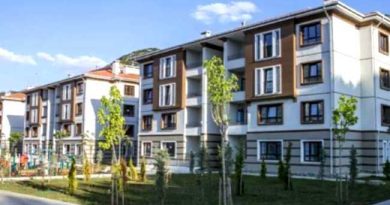NEWS SCAN for Turkey – Nov 26th, 2013
 Ruling AK Party announces mayoral candidates
Ruling AK Party announces mayoral candidates
Turkish Prime Minister Recep Tayyip Erdogan announced Tuesday the mayoral candidates of the ruling Justice and Development (AK) Party for 2014 local elections, which will be held on March 30.
Currrent mayor Melih Gokcek will run for Ankara again, while the incumbent mayors Tahir Akyurek, Mehmet Ozhaseki will run for Konya and Kayseri respectively. On the other hand President of Eskisehir Chamber of Commerce Harun Karacan will run for Eskisehir.
In the latest 2009 local elections, the overall winner was the ruling AK Party, despite losing votes compared to the 2004 elections.
In 1991 Gökçek entered the parliament as Ankara MP for the Welfare (Refah) Party. While he was an MP during the local elections in 1994, he stood for the Mayor of Ankara Metropolitan Municipality and won the election. He was elected for the same duty again in 1999 as the candidate of the Virtue (Fazilet) Party and became the first person to be successively elected as the Mayor of Metropolitan Municipality twice in the history of Ankara. He then joined the ruling AK Party and was re-elected third time in 2004 and even a fourth time in 2009. Gokcek won the elections with almost 1 million votes, followed by Murat Karayalcin of The Republican People’s Party (CHP) with 750 thousand.
Mehmet Ozhaseki of AK Party won the 2009 elections with 60.5 per cent in central Anatolian province of Kayseri, which is among the fastest growing provinces across the country. The candidate of the Nationalist Movement Party (MHP) had 23 per cent of the total votes, coming in second in the province.
MEDIA
Ruling AKP’s constitutional panel options
After more than two years of work, Parliament’s Constitution Conciliation Commission is at yet another threshold, with the ruling Justice and Development Party (AKP) having offered Parliament Speaker Cemil Çiçek to dissolve the Commission last week.
Nevertheless, according to a document signed by all four political parties that regulates the working principles of the Commission, Çiçek does not have the authority to end the work by his own initiative.
As a matter of fact, during a meeting on Nov. 14, Çiçek also said he would make public that the Commission had been dissolved only if the four parties agree to it. The AKP insisted that Çiçek could dissolve the Commission himself, but the discussion continued after the main opposition Republican People’s Party (CHP) and Nationalist Movement Party (MHP) objected.
Eventually, having failed to arrive at a conclusion over the fate of the Commission, the parties agreed to hold another meeting today (Nov. 18) for further discussions.
In order for the Commission to be dissolved, either one of the parties has to officially declare that it will not attend the Commission’s work anymore, or one of the parties should be absent from meetings on three occasions without offering any justifications.
All opposition parties – the CHP, the MHP, and the Peace and Democracy Party (BDP) – are known to be determined to continue the panel’s work. Therefore, the AKP has three options.
HURRIYET DAILY NEWS
Barzani set to visit Ankara to seal deal
Turkey’s willingness to maintain strong relations with the Iraqi central government in Baghdad and its eagerness to do so while finalizing energy deals with the regional government in Iraqi Kurdistan will be best reflected this week in two key visits.
Parliament Speaker Cemil Çiçek will depart for an official visit to Baghdad today, while Prime Minister Nechirvan Barzani of the Kurdistan Regional Government (KRG) is expected to visit Ankara later this week. “Barzani and his Turkish counterpart Recep Tayyip Erdoğan will seal the final deal allowing the export of Kurdistan’s oil through a recently completed pipeline to Turkey and from there to the world market,” www.rudaw.net, an online news portal known to have close ties with the Massoud Barzani-led Kurdistan Democratic Party (KDP) of Iraq, reported on Nov. 25. The respective parties are working on the schedule Nechirvan Barzani’s visit to Ankara, a Turkish official told Hürriyet Daily News, adding that the energy issue will be high on the agenda of talks.
His visit comes at the completion of a pipeline that will link up to an existing Iraq-Turkey pipeline and begin carrying Kurdistan’s oil to world markets from December.
Nechirvan Barzani has announced that he would visit Baghdad this week in order to give further details regarding the Kurdish-Turkish pipelines. Upon his talks in Ankara, Barzani is expected to visit Baghdad in order to discuss the details of the deal with Iraqi Prime Minister Nouri al-Maliki.
HURRIYET DAILY NEWS
Report: Prep schools improve students’ chances of getting into university
An Education Reform Initiative (ERG) report on whether closing Turkey’s prep schools (dershanes) will boost equality of opportunity and improve the quality of education says that attending a prep school boosts students’ chances of getting into university, and that many think the education offered at these institutes is better than what students get in the Turkish school system. The Justice and Development Party (AK Party) government plans to close down the prep schools, which specialize in preparing students for standardized high school and university entrance exams, claiming that they are detrimental to equality of opportunity in education.
The ERG’s report compiles six academic papers prepared at different times, including the results of a 2005 survey by the Turkey Education Association (TED).
Seventy-two percent of teachers taking the survey cited poor education in schools unable to prepare their students for the competitive standardized entrance exams as “the main reason” why students enrolled in classes at dershanes. Fifty-seven percent of university students, 77 percent of high school graduates and 58 percent of high school students said they attended dershanes because of poor education they were getting at their schools.
Another question on the survey asked which institutions, schools or dershanes, offered better education. Forty-four percent of high school students, 65 percent of high school graduates, 34 percent of university students and 42 percent of teachers said prep schools offered better education.
According to a 2005 study by Tansel and Bircan mentioned in the report, going to a prep school increases students’ chances of acceptance at a two-year or four-year university by 9 percent.
TODAYS ZAMAN
AKP, Gulen community in open war
The de facto ruling coalition between Prime Minister Recep Tayyip Erdogan’s Justice and Development Party (AKP) and the Fethullah Gulen community has devolved into a war, which is now in the open. The Gulen community was instrumental in ending the political tutelage of Turkey’s Kemalist-Republican military and senior judicial bureaucracy through a series of police operations and mass trials from 2008 to 2011, as well as administrative and constitutional measures. The row, which flared occasionally in the past two years, has grown into an open war, with the sides hurling veiled threats at each other, after it emerged that the government is planning to shut down Turkey’s prep schools, a major source of financial revenues and human resources for the Gulen community.
The spark that fueled the war was a scoop that the Zaman daily, the flagship of the Gulenist media, published coverage on Nov. 13 about a draft law indicating that the AKP is readying to close down the prep schools in the 2013-14 school year.
Why do the prep schools matter? University and secondary school admissions in Turkey are determined through nationwide centralized exams, since the total number of students hugely outnumbers school capacity. The fierce competition has been coupled with a chronic quality deficit at public schools. Thus, the establishment and growth of private schools preparing students for the exams has become inevitable.
The Hizmet (Service) movement — or the Gulen community, as it is widely known in Turkey — owes its domestic clout mainly to the thousands of prep and regular schools it began to open in the 1970s. Since then, it has grown into a global sociopolitical Islamic movement thanks significantly to the schools it also opened around the world. Closing the prep schools by law would no doubt deal a major blow to the community. There is also a social aspect to the issue, given that the prep schools employ about 100,000 people.
AL-MONITOR
26.11.2013
compiled by Editor BTT,
This is a news-scan from major Turkish papers and internet sites. However, we do not verify above stories neither do we vouch for their accuracy.





